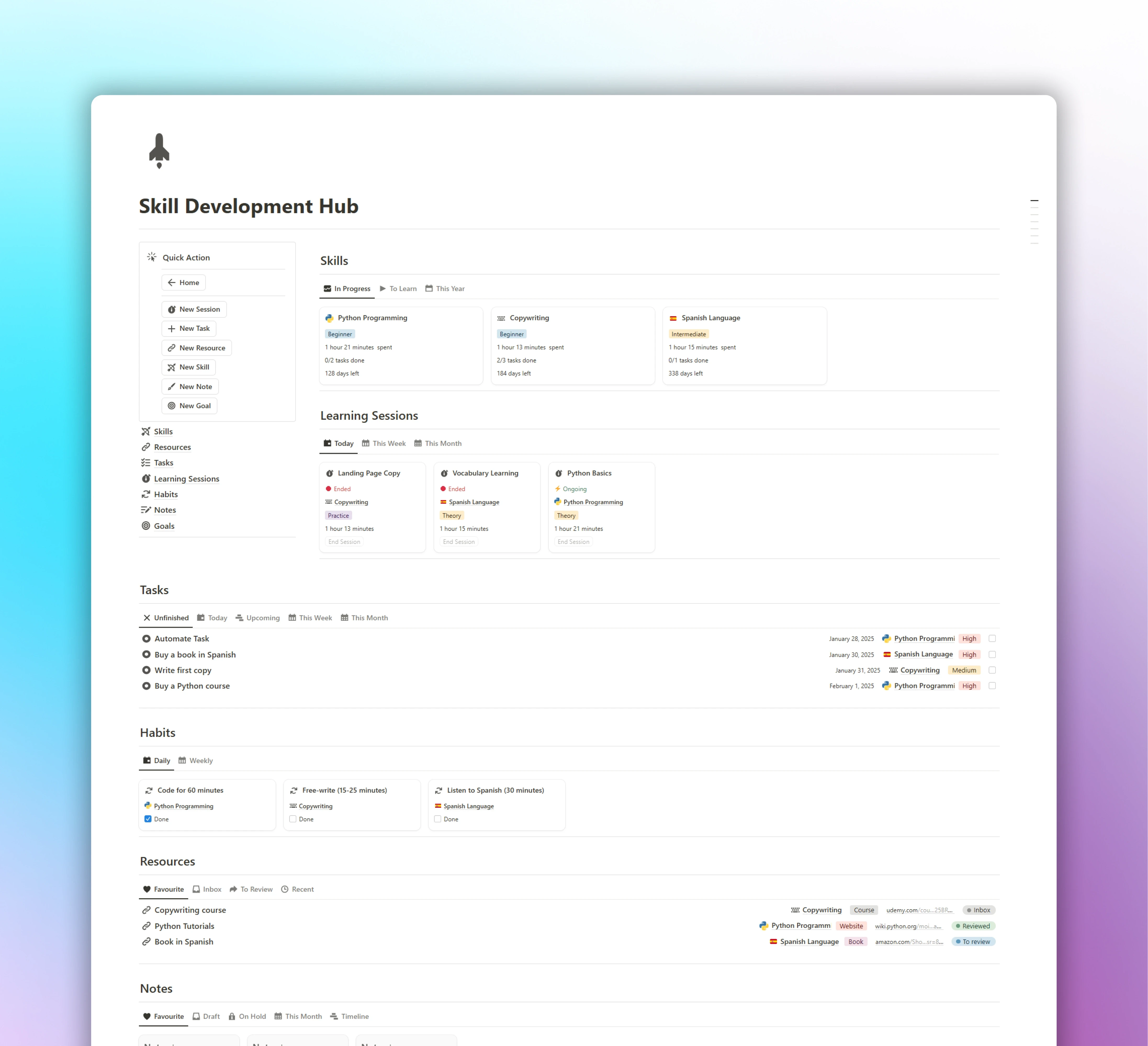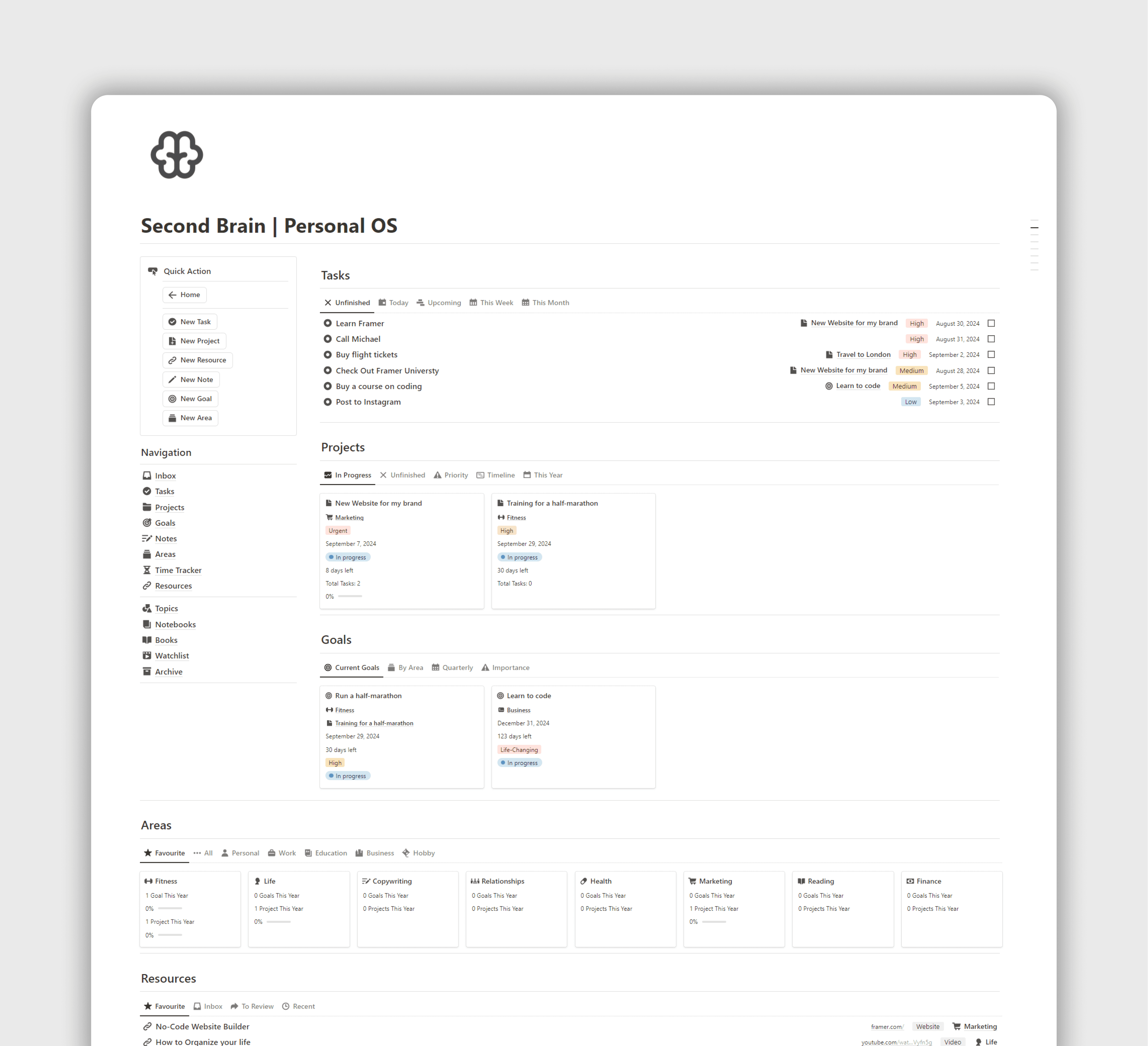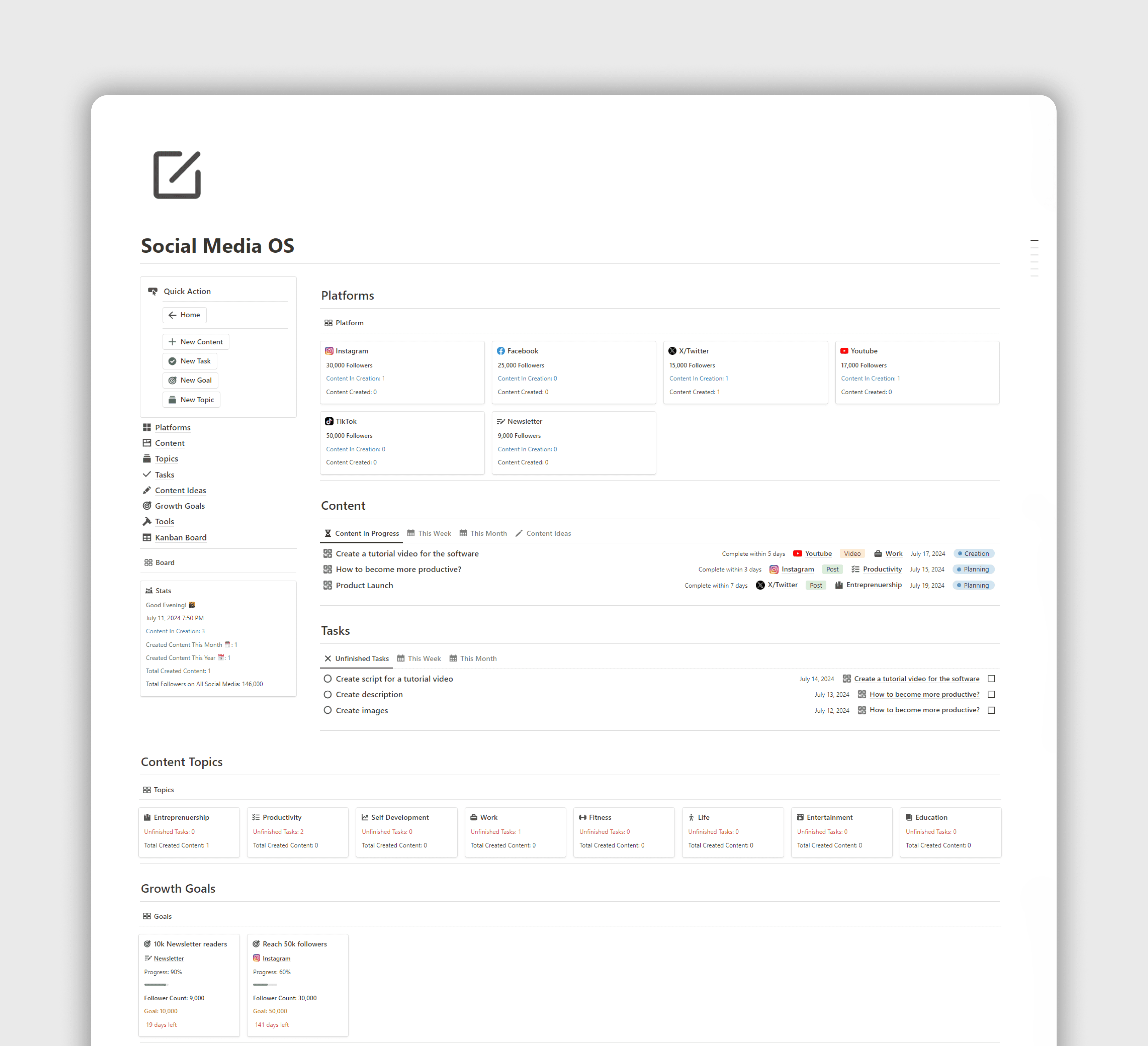The Ultimate Notion Formula Tutorial
Master Notion formulas to transform your databases into intelligent systems


FocusWhale
Thursday, January 30, 2025
Notion formulas are powerful tools that can transform your databases from simple information stores into dynamic, intelligent systems. Whether you're new to Notion or looking to level up your skills, this guide will walk you through everything you need to know about creating and using formulas effectively.
Understanding Notion Formulas
What are Notion formulas?
Notion formulas are custom calculations or operations you can add to your databases. They work behind the scenes to process information from your properties, giving you new insights or automating tedious tasks. Think of formulas as your personal assistant, always ready to crunch numbers, format text, or make decisions based on your data.
Unlike static spreadsheet formulas, Notion formulas are dynamic and responsive. They update in real-time as you change information in your database, keeping your workspace current and accurate without manual intervention.
Formula components
To build effective formulas, you need to understand their building blocks:
Properties are the columns in your database. They hold the raw information you'll work with. When you reference a property in a formula, you're telling Notion to use that specific piece of data.
Functions are pre-built operations in Notion. They range from simple math to complex text manipulation. For example, the round() function rounds numbers, while dateAdd() helps with date calculations.
Operators are symbols that perform actions. The plus sign (+) adds numbers or joins text, while the equals sign (==) checks if two values are the same.
Constants are fixed values you can use in your formulas. These might be numbers like 3.14 or text strings like "Completed".
Data types in Notion formulas
Notion formulas work with several types of data:
Text: Any string of characters
Number: Numerical values for calculations
Checkbox: True/false values
Date: Time and date information
Person: References to Notion users
Page: Links to other pages in your workspace
List: Collections of other data types
Understanding these types is crucial because certain operations only work with specific data types. For instance, you can't add a number to a text string without first converting one of them.
Getting Started with Notion Formulas
Accessing the formula editor
To create a formula, start by adding a new property to your database. Choose "Formula" as the property type, and you'll see the formula editor appear. This is where the magic happens.
The editor has two main parts: a text area where you type your formula, and a sidebar with available functions and properties. As you work, Notion provides real-time feedback, showing errors or previewing results.
Basic syntax rules
Notion formulas follow a specific syntax:
Property names go in quotation marks:
prop("Property Name")Functions use parentheses:
round(3.14159)Operators go between values:
5 + 3Text strings use quotation marks:
"Hello, world!"
Here's a simple formula that adds two number properties:
This would calculate the total cost of an item including tax.
How to reference properties
Referencing properties is straightforward. Just use prop() and put the exact name of your property inside quotes. If your property name has spaces or special characters, make sure to include them exactly as they appear.
For example, if you have a property called "Due Date", you'd reference it like this:
Notion is case-sensitive, so "due date" won't work if your property is called "Due Date".
Simple calculations and operations
Let's start with some basic calculations. If you have a "Quantity" and a "Unit Price" property, you could calculate the total like this:
For text, you can join properties using the + operator:
This would combine the first and last name properties with a space in between.

Essential Notion Formula Functions
Text functions
Notion offers several functions for working with text:
concat() joins multiple text strings:
format() converts other data types to text:
length() counts characters in a text string:
replace() swaps out part of a text string:
These functions are particularly useful for cleaning up data or creating formatted outputs for reports or displays.
Number functions
For mathematical operations, try these functions:
round() rounds to the nearest whole number:
floor() rounds down:
ceil() rounds up:
abs() gives the absolute value:
These functions help when you need precise control over numerical data, especially in financial or scientific contexts.
Date functions
Working with dates is a common task, and Notion provides powerful functions for this:
dateAdd() adds time to a date:
dateBetween() calculates the time between two dates:
formatDate() changes how a date is displayed:
These functions are invaluable for project management, event planning, or any task involving time calculations.
Logical functions
Logical functions help you make decisions in your formulas:
if() chooses between two options based on a condition:
and() checks if multiple conditions are true:
or() checks if at least one condition is true:
not() reverses a boolean value:
These functions form the backbone of complex decision-making in your databases, allowing you to create dynamic systems that respond to changing data.
Intermediate Formula Techniques
Working with multiple properties
As you become more comfortable with formulas, you'll often find yourself working with multiple properties at once. This is where the real power of Notion formulas shines. You can combine different types of data to create meaningful insights.
For example, let's say you're tracking a reading list. You might have properties for "Pages", "Current Page", and "Start Date". You could create a progress formula like this:
This formula calculates the percentage of the book read and how many days you've been reading it, combining number, date, and text operations in one go.
Nested functions
Nesting functions means putting one function inside another. This technique allows you to perform complex operations in a single formula. Here's an example that checks if a task is overdue and high priority:
This nested formula first compares the current date to the due date, then checks if the priority is high. Only if both conditions are true will the formula return true.
Creating conditional statements
Conditional statements in Notion formulas let you create dynamic, responsive properties. The if() function is your main tool here, but you can nest these for more complex logic.
Here's a formula that categorizes tasks based on their due date:
This formula checks if there's a due date, then whether it's in the past, within a week, or further in the future, and assigns a category accordingly.
Handling errors and edge cases
Robust formulas need to handle unexpected inputs or edge cases. Notion provides several tools for this:
The if() function can check for null values:
The or() function can provide fallbacks:
Always consider what might go wrong with your formula and build in safeguards. This will make your databases more reliable and user-friendly.
Advanced Notion Formula Applications
Complex date calculations
Date calculations can get tricky, especially when dealing with business days or specific time ranges. Here's a formula that calculates business days between two dates, excluding weekends:
This formula assumes a standard five-day work week. For more accurate calculations, you might need to account for holidays or custom work schedules.
Custom sorting and filtering
While Notion offers built-in sorting and filtering, formulas can give you more control. For example, you could create a custom sort key that combines multiple properties:
By sorting on this formula property, you'd get items grouped by priority, then by due date, and finally by assignee.
Dynamic property generation
Formulas can generate entire properties based on your data. This is useful for creating summary fields or custom identifiers. Here's a formula that creates a unique ID for each row:
This combines the first three letters of the project name with a unique Notion-generated ID, creating identifiers like "PRO-7f3c1b2d".
Integrating with other Notion features
Formulas become even more powerful when combined with Notion's other features. For instance, you can use formulas with relation properties to pull in data from linked databases:
This formula assumes you have a relation to a "Clients" database and pulls in the company name from there.

Troubleshooting and Optimization
Common formula errors and how to fix them
When working with formulas, you might encounter errors. Here are some common ones and how to address them:
"Type mismatch": This often occurs when you're trying to perform an operation on the wrong data type. Double-check that you're using the correct data types or use functions like
toNumber()orformat()to convert between types."Property not found": This error means you're referencing a property that doesn't exist or is misspelled. Check your property names carefully, including capitalization.
"Circular dependency": This happens when a formula refers back to itself, directly or indirectly. Restructure your formula to avoid this loop.
Performance considerations
Complex formulas, especially those referencing many properties or using nested functions, can slow down your database. To optimize performance:
Simplify formulas where possible
Use rollup properties for calculations across related databases instead of complex formulas
Consider using multiple simple formulas instead of one very complex one
Testing and refining formulas
Always test your formulas thoroughly. Create test cases with different inputs to ensure your formula handles various scenarios correctly. As you refine your formulas, keep a record of different versions. This allows you to roll back if a new version doesn't work as expected.
Practical Examples and Use Cases
Project management formulas
For project management, formulas can automate status updates and calculations. Here's a formula that calculates the days left until a deadline, but only if the task isn't completed:
This gives you a quick overview of task statuses without manual updates.
Financial calculations
Notion can handle complex financial calculations. Here's a simple compound interest calculator:
This calculates the future value of an investment given a principal amount, interest rate, and number of years.
Personal productivity trackers
For personal use, you might want to track habits or goals. Here's a formula that calculates a streak of daily tasks:
This formula increments a streak counter if the task was completed today and yesterday, resets it if there was a break, or keeps it the same if not completed today.
Content planning and editorial calendars
For content creators, formulas can help manage publishing schedules. Here's a formula that suggests the next publication date based on a desired posting frequency:
This takes the most recent publish date (or today if it's in the past) and adds the desired number of days between posts.
Tips for Formula Mastery
Start simple and build complexity
Begin with basic formulas and gradually add more elements as you become comfortable. This approach helps you understand each part of your formula and makes troubleshooting easier.
Use the Notion formula documentation
Notion's official documentation is a valuable resource. It provides detailed explanations of all functions and operators, often with examples. Bookmark it for quick reference.
Learn from community examples
The Notion community is active and creative. Explore forums, Reddit, or Notion's own community to find inspiring examples and solutions to common problems.
Practice regularly with real-world scenarios
The best way to improve your formula skills is to use them. Challenge yourself to solve real problems in your workflows using formulas.
Stay updated with new Notion features
Notion regularly adds new features and functions. Keep an eye on their release notes and update announcements to take advantage of the latest capabilities.
Remember, mastering Notion formulas is a journey. Each formula you create builds your skills and opens up new possibilities for organizing and automating your work.
To further enhance your Notion experience and put your new formula skills to use, consider exploring FocusWhale's premium Notion systems. These templates are designed to boost productivity and organization, providing a perfect playground for your formula experiments.
Conclusion
Notion formulas are a powerful tool for customizing and automating your workspace. From simple calculations to complex decision-making systems, formulas can transform how you interact with your data. As you've seen, the possibilities are vast, limited only by your creativity and the needs of your projects.
We've covered a lot of ground, from the basics of syntax to advanced techniques and real-world applications. Remember, the key to mastering formulas is practice and experimentation. Don't be afraid to try new things and push the boundaries of what you think is possible in Notion.
As you continue to explore and create with Notion formulas, share your discoveries with the community. Your unique solutions might be just what someone else needs to solve their own challenges. Happy formula crafting!
database automation, productivity tools, data management, custom calculations, workflow optimization
Other Blog Posts
FAQ
Premium Notion Systems
Subscribe to Our Newsletter
Join the 7,000 subscribers who read our irregular newsletter.











